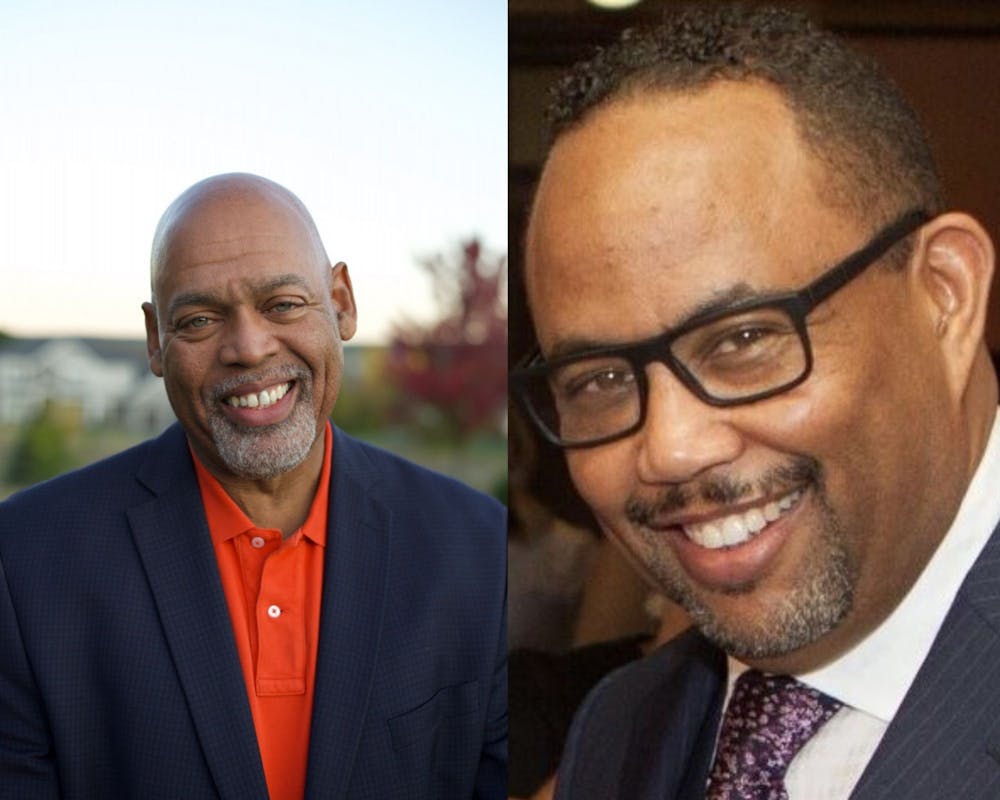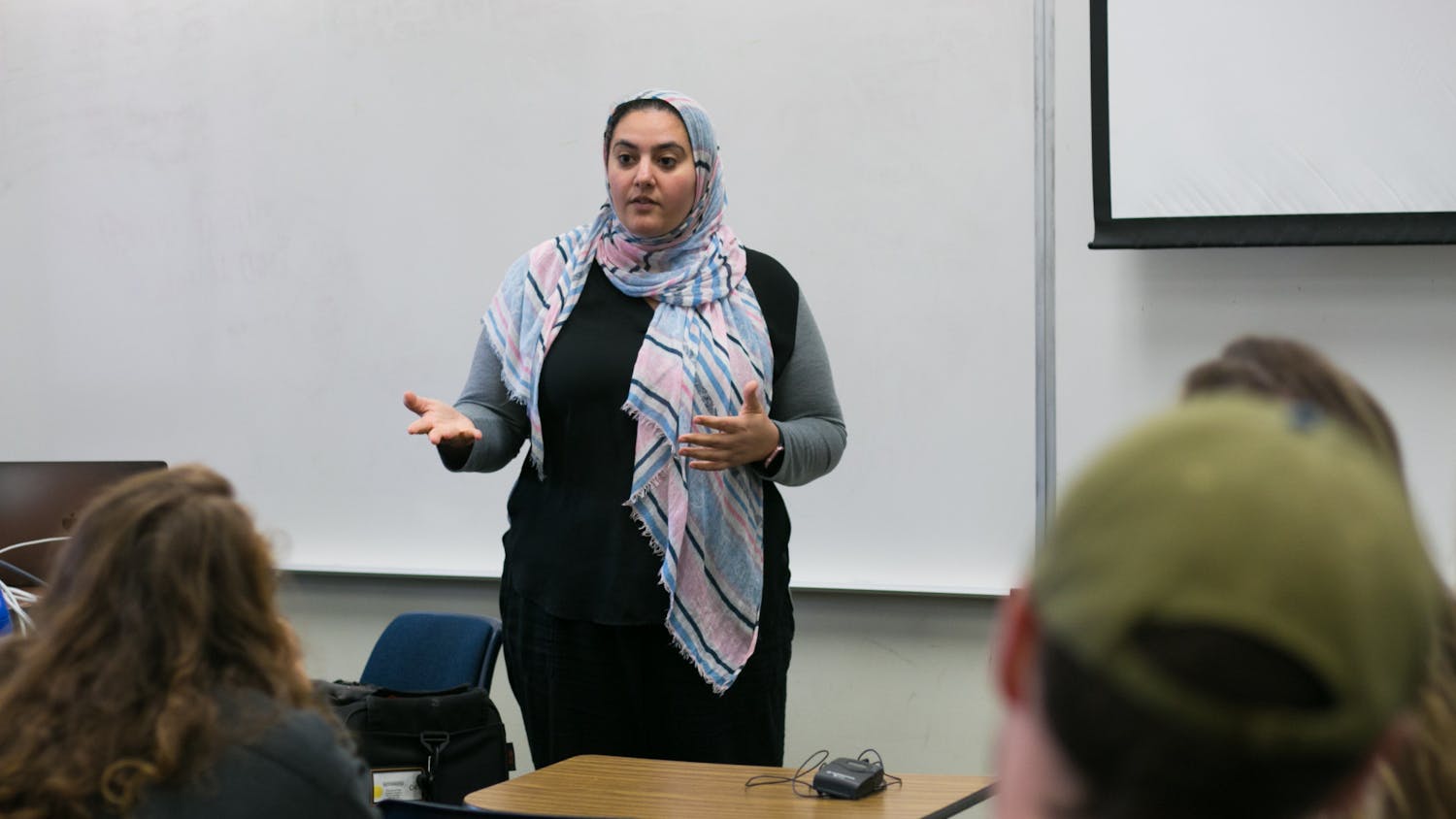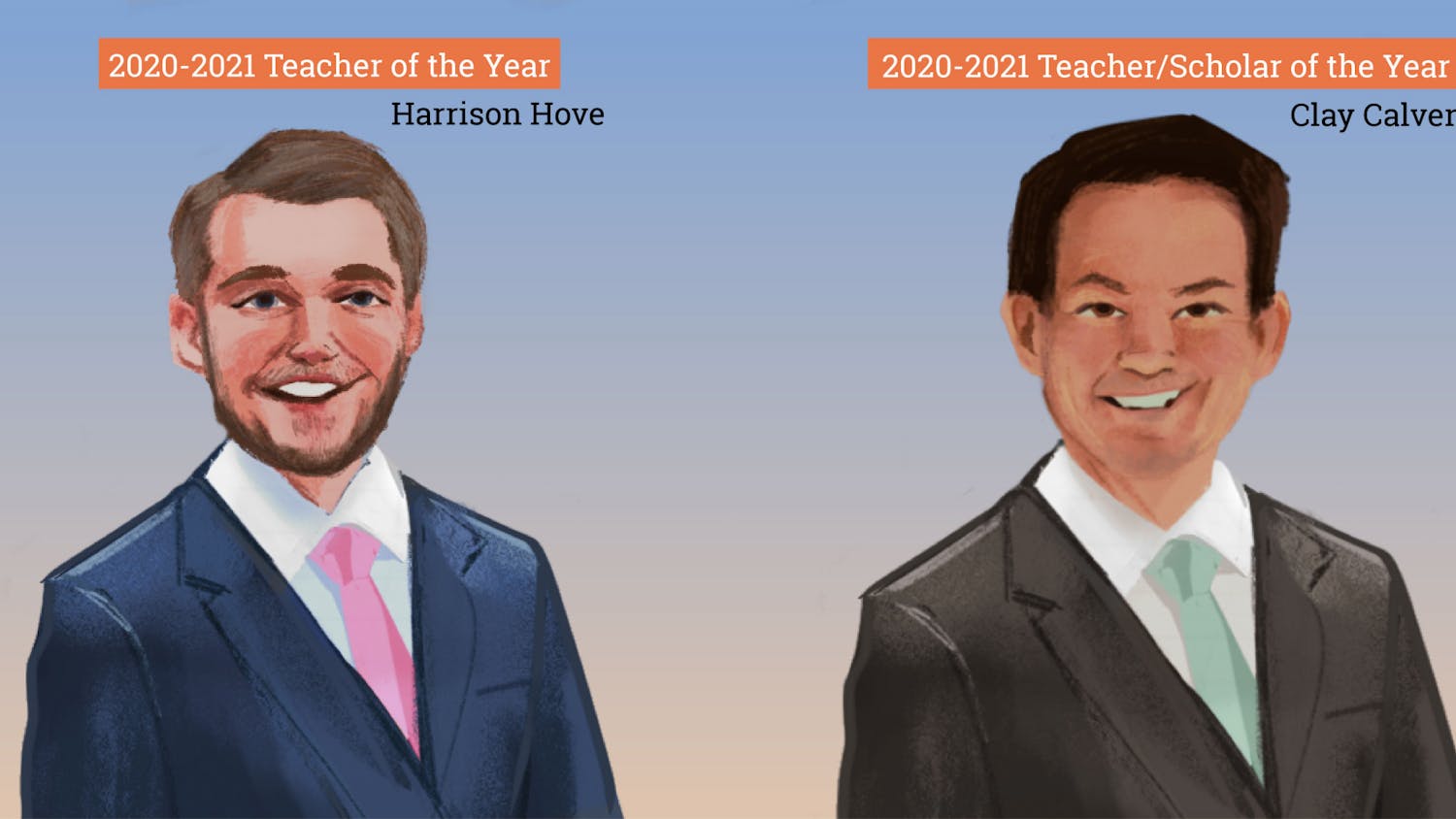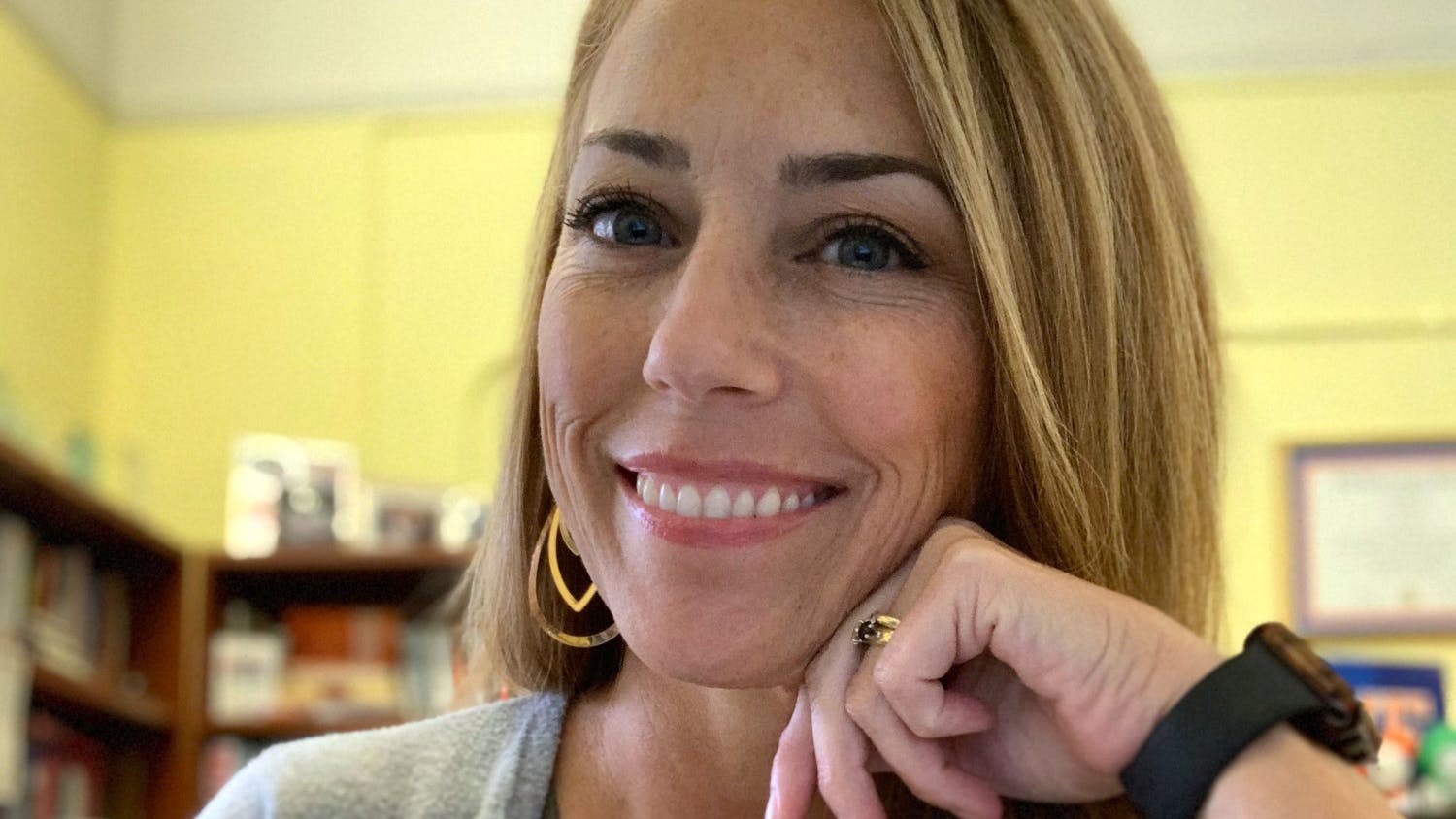UF’s College of Journalism and Communications’ search for its next dean has come down to two finalists.
For its faculty of communicators — already grappling with the COVID-19 pandemic, protests over racial injustice and a potentially contested presidential election — it’s another thing added to the list.
“It’s kind of a perfect storm,” said Kim Walsh-Childers, a journalism professor with no relation to the search committee. “All of that coming at the same time and all of it having impact on how faculty and staff are able to do their jobs.”
The two finalists are Battinto Batts, director of journalism strategies for the Scripps Howard Foundation, and Hubert Brown, an associate dean at Syracuse University’s Newhouse School of Public Communications.
However, faculty members were frustrated by the timetable of the search. Walsh-Childers said she heard from a number of colleagues who felt the search was ill-timed due to the chaotic nature of 2020 and a lack of openness from the search committee. Diane McFarlin, the CJC’s current dean, announced her retirement in March for the end of 2020.
“I think the timing and the process contributed to people feeling less comfortable with the search than they might have under different circumstances,” Walsh-Childers said.
Faculty members were also concerned over the number of finalists, Walsh-Childers said, who noted the number of finalists — three — was fewer than the last dean search in 2012, which consisted of six.
“People always want to have more choices,” Walsh-Childers said. “It is not unreasonable for faculty to be concerned over having someone in the position who may have to make the decision over furloughs or layoffs.”
Michael Reid, the head of the search committee and the dean of the College of Health and Human Performance, feels confident in the final two candidates.
“What I think these finalists bring is an ability to work across disciplines and build programs,” Reid said, “so that the students get their very diverse array of needs met by the program that they choose to enroll in.”
All three finalists were people of color, which differs from previous occupants of the role. Whoever is selected would be the first person of color to hold the title.
The third finalist, Aminda Marques Gonzalez, executive editor of the Miami Herald and UF journalism alumna, was named with the two on Sept. 4.
A pioneer in journalism, Marques started a Herald intern in 1986 before rising to become executive editor and, in 2019, publisher of the Herald. She is the first Hispanic person to hold the role of editor at the paper.
However, Marques withdrew her candidacy on Oct. 2, three days before her interviews were set to begin. She came under fire due to controversy surrounding racist comments by a Miami Herald columnist and anti-Semitic advertisements appearing in the Herald and El Nuevo Herald, the Spanish version of the paper. She stepped down from the role of publisher on Sept. 24 but remains editor of the paper.
Batts’ on-campus interviews were held Oct. 2-3. Brown’s interviews were held Oct. 8-9. No date has been set for the next dean to start.
Battinto Batts
Battinto Batts, the director of journalism strategies at the Scripps Howard Foundation, has an ambitious goal for his CJC tenure.
“What I see here at the College of Journalism and Communications is the capacity to address contemporary issues and problems in our society,” said Batts in his “Vision” presentation to students last week, which highlighted his goals for the college.
To do so, Batts plans to focus on three issues: diversity, equity and inclusion. The topics have been sorely lacking in both newsrooms and news coverage, according to studies conducted by the Pew Research Center.
He also plans to make diversity a point in faculty recruitment, stressing the need for a representative faculty for students.
“It’s never something that you can sit back and say, like a painting, it’s done,” Batts said. “It’s never done.”
Batts believes both are necessary in an education in media, but hopes to conjoin the two issues and develop a plan of empowerment — allowing students to feel as though they’re contributing to their future jobs.
It’s something Batts has sought to implement at previous roles. He previously served as an assistant dean at the Scripps Howard School of Journalism Communications at Hampton University.
There, he helped restructure the requirements to advance to upper-level journalism courses. Instead of a necessary grammar and AP style exam, there would be a new introductory class and students’ progress would be viewed in a holistic manner, not solely on their test scores.
“It was a different perspective shift,” said B. DàVida Plummer, the program’s dean. “It was his insight and initiative that made us more probative.”
In his current role as director of journalism strategies, he manages an endowment of about $65 million. He’s also required to keep an eye on journalism programs throughout the country, which is what led him to visit UF in February.
“I’ve worked with many Gators over the course of my career, so this was already a program I thought very highly of,” Batts said.
If chosen as dean, he will enact a 90-day plan, one that includes a listening tour; engaging with faculty, staff, students and alumni; and an appointment of a team to develop the college’s strategic plan. The college’s current 5-year plan, which outlines its goals and methods to achieve them, concludes this year.
“My role is to work alongside others to provide opportunities for them to grow and succeed,” Batts said.
He will start with a listening tour, giving all parties involved in the CJC — students, faculty, staff and alumni — a chance to provide their input into the college’s future.
“If students and our graduates are performing well, that’s what speaks the loudest to the success of our program,” Batts said.
After getting his bachelor’s degree in mass communications from Virginia
Commonwealth University in 1990, Batts worked at a range of local and regional papers in Virginia and Florida.
He then got his master’s in media communications at Norfolk State University and a doctorate in higher education management at Hampton. A son of a school teacher and career counselor, it is them he wants to emulate at UF.
“I will continue to be an agent for change, opportunity and innovation,” Batts said. “This is who I am. This is my fabric.”
Hub Brown
As a candidate for the role of dean for the CJC, Brown aspires to guide students on their roles as communicators, highlighting the need to expand the college beyond the first major in its name.
“I work at a school where the majority of students that come through are not journalists,” Brown said. “You have to keep into account that people are going to advertising and public relations. We have to be accountable for all of them.”
That commitment was emphasized in Brown’s “Vision” presentation last week, where he touched on the topics of inclusion, diversity, equity and accessibility — the “IDEA” of what the CJC should be known as.
“I see it as central to the future of communication,” Brown said in his presentation. “Whether we want to be or not — this is where we’re headed.”
Brown — the associate dean of research, creativity, international initiatives & diversity at Syracuse’s Newhouse School of Communications — plans to keep an open-door policy, allowing students to find answers and advice whenever they need.
“Students are your most important constituency,” he said. “It’s vitally important to make sure you have access to the voices of all your constituency.”
It’s something that helped Saniya More, a 23-year-old Syracuse graduate.
More is a founder of Globalists, a student-run organization that discusses culture, identity and global issues to “build a nuanced understanding of each other and find common ground,” per the organization’s website.
In January 2018, the Syracuse University Student Association rejected the organization, claiming there were already organizations with that purpose. That put More in Brown’s office, upset and unsure of what to do.
Brown urged her not to give up.
“Why can’t there be more than one publication that’s doing a similar thing?” he asked her.
That led her and her colleagues to revise and resubmit their application, which was later approved. Brown currently serves as their adviser.
“I was a scared sophomore with a really big idea who thought she was way over her head,” said More, now a reporter for the cryptocurrency outlet The Block. “He took a chance on me.”
His consideration for students continued into 2019.
Last November, months before George Floyd’s death, protests over systemic racism swept Syracuse University. In their aftermath, Brown hosted weekly listening sessions for minority groups across Syracuse, hoping to provide them a safe space to express themselves.
“He’s very empathic and is also someone who’s very appreciative of the lived experiences of others,” said Keith Alford, the chief diversity and inclusion officer at Syracuse. “He actively seeks to validate and support at all times — as well as educate.”
As a broadcast journalist in Nebraska, Brown spent time covering institutions like the state legislature before transitioning to academia. He began his instructional career at the University of Nebraska which later led him to Syracuse in 1996, where he spent time as professor and department chair before associate dean.
Another aspect of his strategic plan for the CJC centers on fighting disinformation.
He plans to act on “deepfakes” — edited clips that swap out someone’s face for someone else — and false information spread online, aiming to equip students with the knowledge to counter them.
Like Batts, he also hopes to focus on figuring out what students want in their education and how the CJC is best able to provide it to them.
“The students are why we’re here,” Brown said. “What you want to do is take a moment, let people talk, and be there — try to be present for them.”
Contact Corbin Bolies at cbolies@alligator.org. Follow him on Twitter @CorbinBolies.






